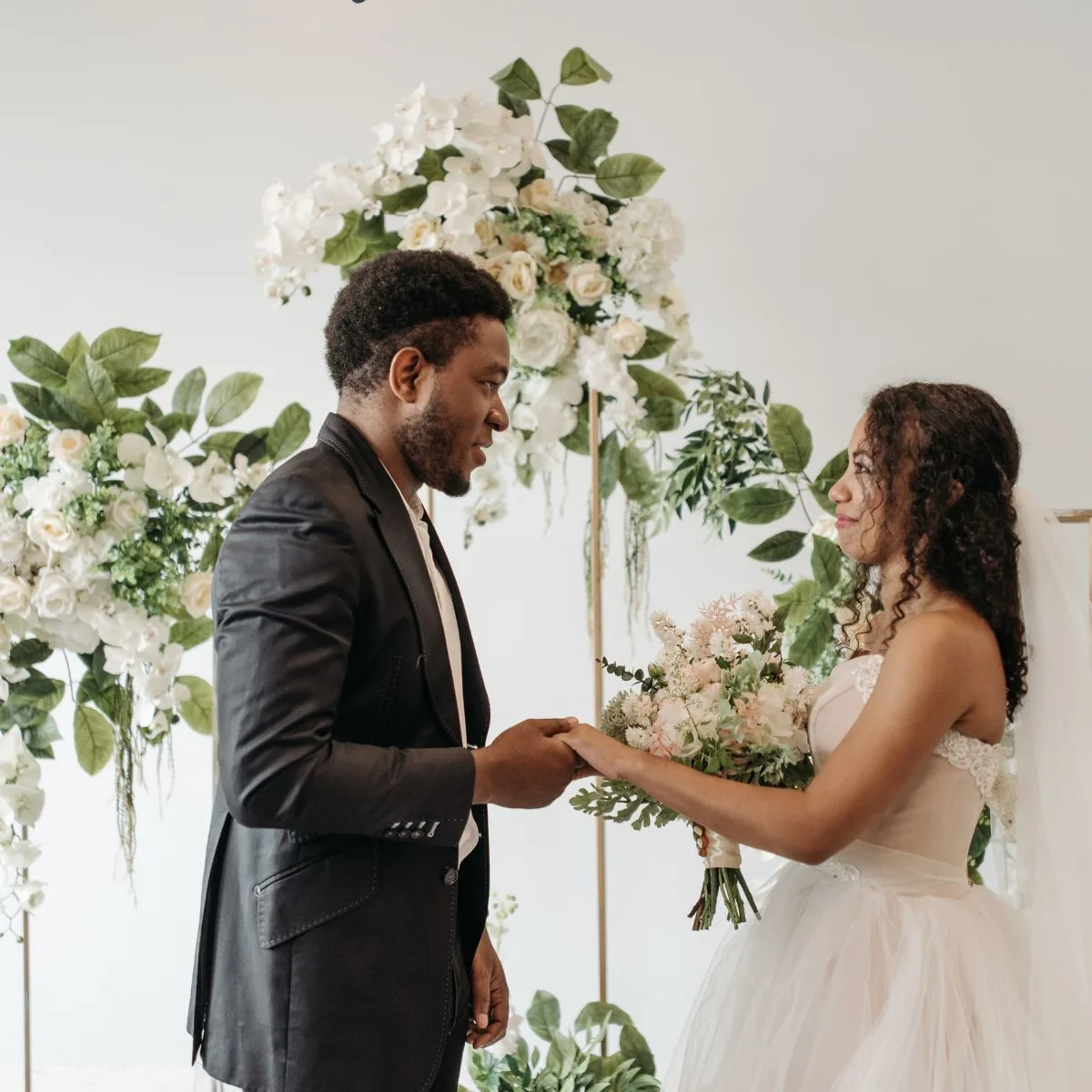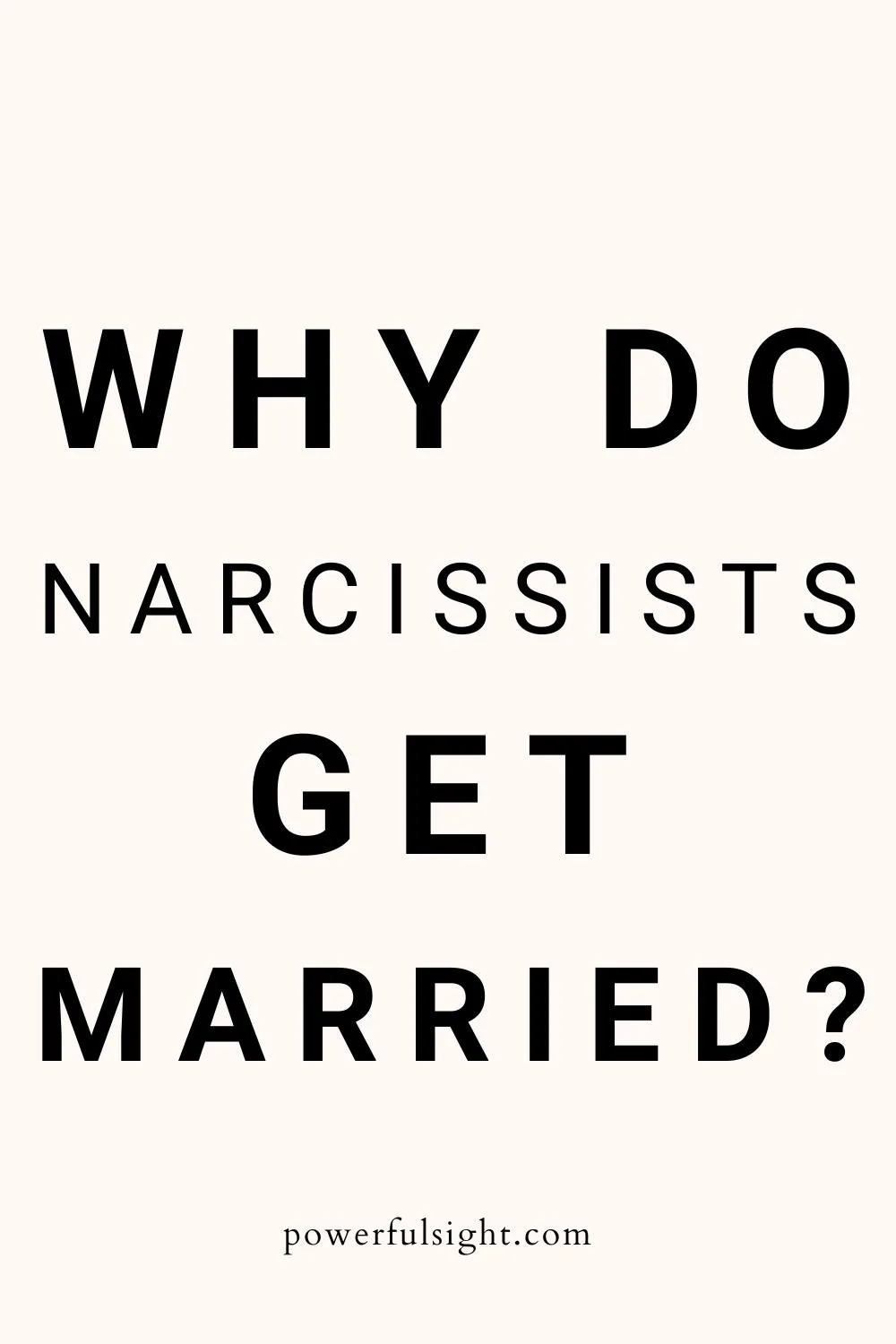When I first started learning about narcissism, I realized it’s so much deeper than just someone being self-centered. Narcissism is rooted in an inflated sense of self-importance, a constant need for admiration, and a real difficulty feeling empathy for others. But what really got me thinking was this: if narcissists struggle with genuine emotional connection, why do narcissists get married in the first place? Is it about love, or is there something more going on beneath the surface? As I dug deeper, I found that their reasons often have less to do with true intimacy and more to do with control, validation, and maintaining a certain image. Understanding this helped me see the complex and sometimes heartbreaking dynamics that play out in relationships with narcissists.

Why Narcissists Get Married
1. They’re Seeking Validation and Admiration
At their core, narcissists crave constant validation and admiration — it’s like emotional oxygen for them. This need massively influences their behavior, especially when it comes to marriage. For many narcissists, getting married isn’t about building a deep, loving bond. It’s about securing a permanent source of affirmation.
They often choose partners who are especially nurturing, admiring, or supportive — people who will consistently lift them up with praise, attention, and approval. Over time, the relationship can become very one-sided, with the narcissist soaking up the validation and the partner left emotionally drained, feeling overlooked and underappreciated.
Moreover, marriage provides a steady stream of opportunities for public acknowledgment — anniversaries, milestones, family gatherings — all chances for the narcissist to shine. Being married validates them not just in private but in the eyes of society, reinforcing their self-image as someone important and desirable.
This heavy dependence on outside admiration often traps both people in a cycle: the narcissist demands more validation, while the partner keeps giving, hoping things will improve. Unfortunately, this dynamic rarely leads to lasting happiness.
Related: 10 Ways Narcissists Divide Families
2. Image and Status Enhancement
Another major reason narcissists get married is the pursuit of image and social status. For a narcissist, marriage is often less about love and more about how the relationship can enhance the way they’re perceived by others.
Narcissists frequently choose partners who “look good on” paper”—someone attractive, successful, influential, or socially connected. The idea is simple: by marrying someone impressive, they themselves appear more impressive. It’s a strategic move designed to elevate their standing in the eyes of the world.
Marriage, in their view, is a way to craft the perfect narrative. They imagine themselves living the “ideal” life — beautiful home, beautiful partner, successful careers — all neatly packaged for public consumption. Every holiday photo, every dinner party, becomes an opportunity to showcase this curated image.
Yet beneath the surface, these marriages are often emotionally hollow. The focus is so heavily placed on appearances that genuine emotional connection takes a back seat. For narcissists, the goal isn’t true intimacy — it’s admiration, approval, and the social perks that come with a polished public life.
Related: 7 Things a Narcissist Will Never Do for You
3. Fear of Being Alone
Despite all their bluster and apparent confidence, many narcissists are deeply afraid of being alone. Underneath their self-sufficient facade lies an intense fear of abandonment and isolation.
This fear often drives them into marriages they aren’t emotionally ready for. They seek reassurance and stability from a partner, hoping that marriage will protect them from the crushing loneliness they secretly dread. But because their relationships are typically built on shallow emotional foundations, the comfort they crave rarely lasts.
Narcissists often cycle through stages of intense idealization — putting their partner on a pedestal — followed by inevitable disappointment once the partner’s imperfections become apparent. This push-pull dynamic creates instability and tension, leaving both partners feeling confused and unfulfilled.
At its heart, the narcissist’s fear of being alone explains why they sometimes rush into relationships or cling to unhealthy ones long after they’re clearly dysfunctional. It’s not about love — it’s about survival.
4. The Pursuit of Idealized Love
Many narcissists carry a fantasy about love — an unrealistic, highly romanticized vision of what relationships “should” look like. In their minds, the perfect relationship will finally give them the endless admiration and support they crave.
They project these fantasies onto their partners early in the relationship, convinced that this person will be the answer to all their emotional needs. Marriage seems like the logical next step, a way to “lock in” the perfection they’ve found.
But reality inevitably falls short of fantasy. Every human being has flaws, and when a narcissist starts to notice them, their once-idealized partner becomes a source of disappointment rather than admiration. This often leads to cycles of criticism, withdrawal, and emotional distance.
The narcissist’s pursuit of idealized love is one of the key reasons they marry — but it’s also one of the main reasons their marriages tend to struggle. Their expectations are so high and their tolerance for imperfection so low that sustained, healthy intimacy is almost impossible.

5. Manipulation and Exploitation
Manipulation is another huge factor in understanding why narcissists get married. Narcissists are skilled at convincing others to fall for them, often using tactics like love bombing — overwhelming their partner with affection, attention, and grand gestures early in the relationship.
Love bombing creates a powerful emotional high, making the partner feel special, needed, and deeply loved. This intense bond can cause someone to overlook warning signs or rush into a deeper commitment like marriage.
Narcissists also use emotional pressure to push the relationship forward. They might issue ultimatums or imply that true love must lead to marriage, all while subtly exploiting their partner’s insecurities. By doing so, they create a dynamic where the partner feels both flattered and trapped.
Once married, the narcissist often shifts tactics, relying more on control and manipulation to maintain their dominance. Recognizing these patterns is crucial for anyone caught in a relationship that feels more like a rollercoaster than a safe space.
6. Fear of Vulnerability
One of the less obvious but deeply powerful motivations behind why narcissists get married is their fear of vulnerability. Narcissists hate feeling emotionally exposed; they see vulnerability as a weakness that threatens their carefully crafted self-image of strength and superiority.
Marriage, paradoxically, can provide them with the appearance of emotional intimacy without actually requiring them to open up. By fulfilling the societal expectation of marriage, they can check off the “emotional connection” box without ever having to truly risk being seen at their most raw or insecure.
Often, narcissists treat their spouse like an extension of themselves, not a separate individual with needs and desires, but a reflection of their image. Real emotional intimacy, which requires honesty, humility, and mutual respect, is terrifying for them, so they keep their partners emotionally at arm’s length while maintaining the appearance of closeness.
Understanding this dynamic helps explain why marriages with narcissists often feel so hollow — the vulnerability needed for real connection simply isn’t there.
7. Desire for Stability in Chaos
Narcissists often lead lives filled with emotional ups and downs, and marriage can seem like a way to create some much-needed stability. Ironically, though, their own behavior often sabotages the very stability they crave.
They may genuinely hope that getting married will bring structure, predictability, and a sense of belonging to their lives. But because they struggle with control issues, emotional immaturity, and deep-seated insecurities, they tend to introduce chaos into their relationships almost by default.
What starts as a search for security often turns into a cycle of emotional highs and lows. Their partner may initially be drawn to the idea of building a stable life together, only to find themselves caught in a confusing whirlwind of affection, criticism, and emotional neglect.
The sad irony is that while narcissists seek stability through marriage, they often create exactly the opposite — instability, drama, and emotional exhaustion. Recognizing this paradox is key to understanding the deeper emotional chaos that often follows narcissistic relationships.
Final thought
After digging into all the different reasons, it’s clear to me that why narcissists get married isn’t as simple as wanting love or companionship. It’s often about control, validation, image, and a deep fear of being alone. Even though on the outside it might look like a normal marriage, underneath, the motivations can be very different—and sometimes damaging for their partners. It really makes me wonder: can a relationship built on fear, control, and illusion ever truly feel fulfilling? Understanding these hidden reasons has helped me see just how important it is to recognize the difference between real love and a relationship that’s just filling a void.
Save the pin for later

- 10 Valentine’s Day Basket Ideas - 09/02/2026
- How To Exit Your Lazy Girl Era - 08/02/2026
- 65 Truth or Dare Questions for Adults - 08/02/2026
